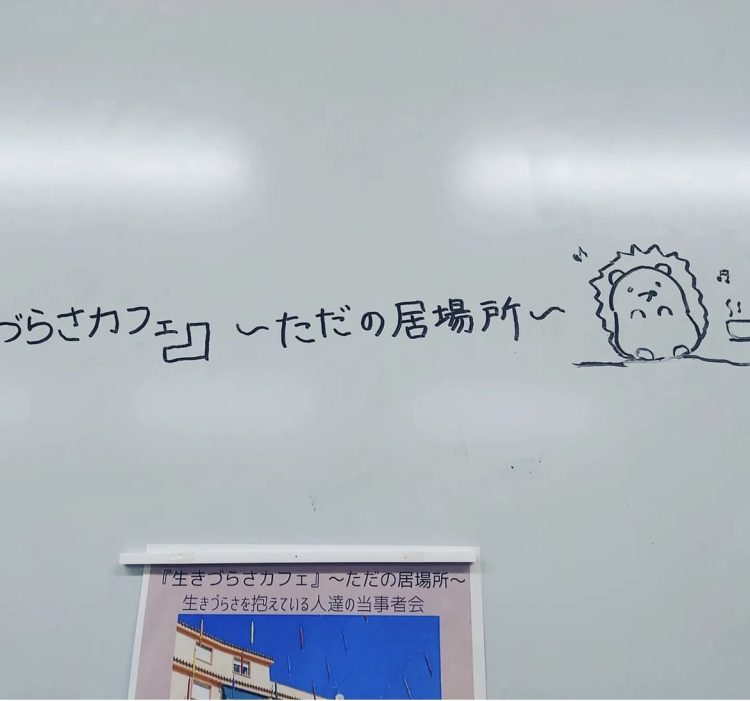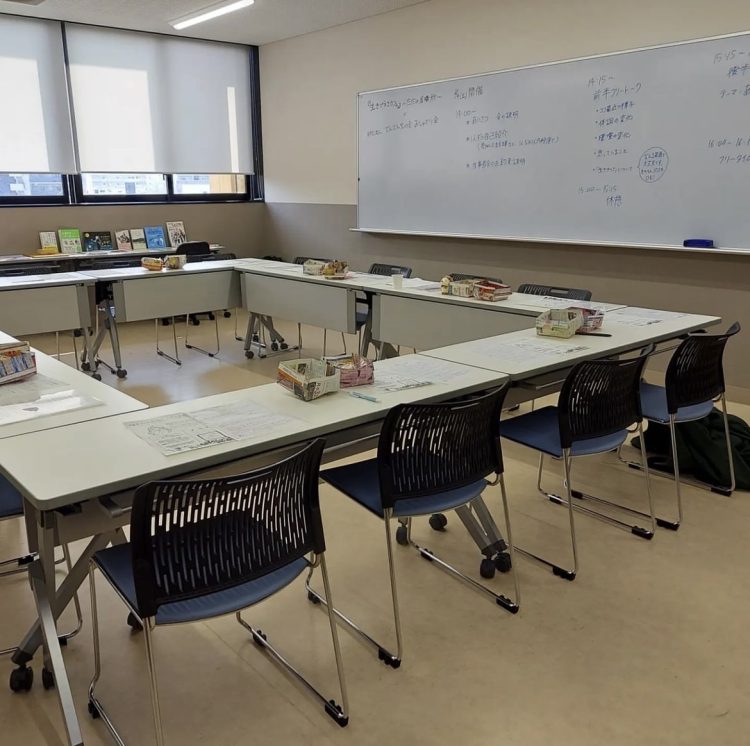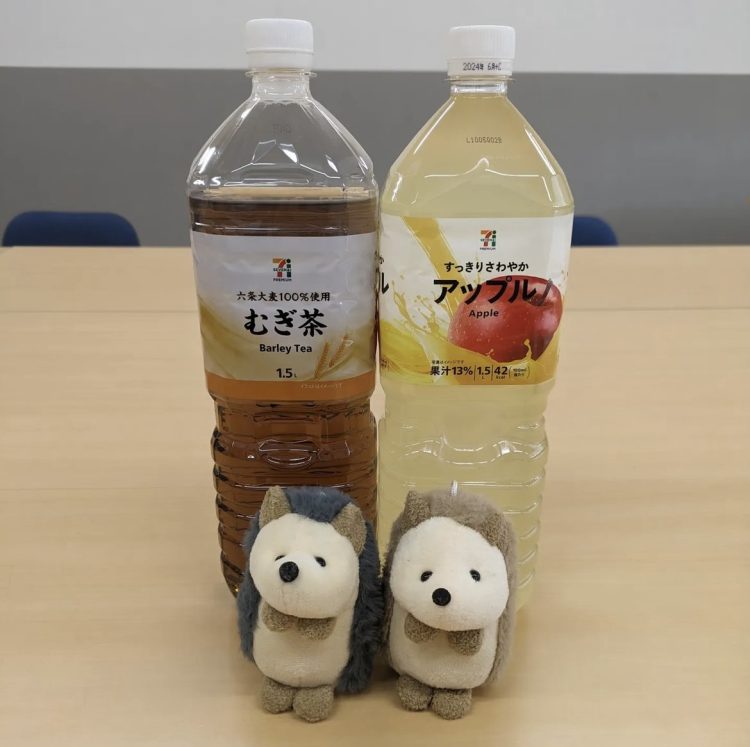A Place where People with Difficulties in Life Can Support Each Other: Valuing Loose Connections InsightsEssays: Civil Society in Japan
Posted on March 14, 2024
Japan NPO Center (JNPOC) has a news & commentary site called NPO CROSS that discusses the role of NPOs/NGOs and civil society as well as social issues in Japan and abroad. We post articles contributed by various stakeholders, including NPOs, foundations, corporations, and volunteer writers.
For this JNPOC’s English site, we select some translated articles from NPO CROSS to introduce to our English-speaking readers.
A Place where People with Difficulties in Life Can Support Each Other: Valuing Loose Connections
In recent years, the number of people suffering from difficulties in living and social isolation has been increasing. While there is a high level of interest in the topic, there may not be sufficient understanding of it. The reality is that many people are unreachable by existing support systems alone.
Sense of Discomfort with Relationship between Supporters and the Supported
It was a video I watched that made me think about a better way to assist those facing difficulties in life. The documentary portrayed a supporting activity for those socially withdrawn, and I felt uncomfortable with the relationship depicted between the supporters and their beneficiaries. It seemed to me that there was a chasm in understanding between those who were experiencing difficulties in life and social isolation, and those who were not. The video showed that those withdrawn socially appealed to be understood, and their supporters were eager to help them; this structure itself, however, seemed to make those to be supported more distressed.
I suspected that an example of such gaps could manifest itself when a supporter did not fully understand the situation of their beneficiary and provided support only perfunctorily, or when they just imposed their intention; the care provided did not reflect the wishes of the recipient of care. I began to wonder if there could be a wall of mutual incomprehension that stood between those helping and helped, and if such relationship could bring about additional and unnecessary distresses to those already in distress. When I was pondering the issue, I unintentionally found an endeavor to create an emotionally safe place for those with difficulties in life called Ikidurasa Café: Just a Place to Be on the Internet and became quite interested; the activity emphasized the importance of having people with difficulties talk to each other on an equal footing. To learn about it more, I requested an interview with the representative of its organizer, Harada-san, who graciously accepted my request. Please note as Harada-san themself also has faced difficulties in life, I would only call them Harada-san without their first name.

A Group for People with Difficulties in Life
-First of all, tell me what you do at Ikidurasa Café.
Harada-san: The Ikidurasa Café is a meeting space for people with mental disorders and those who have similar difficulties in life. We hold a gathering once or twice a month. The age range of participants is very wide: from 20s to those in their 60s. A two-hour gathering is typical, and in its first half, the guests introduce themselves and talk freely. They are free to talk anything about their physical condition: changes in their environment, recent events, and other topics they wish to discuss. After a short break, the second half of the session moves on to a theme talk. We suggest a topic to discuss: your own future, medications and mood swings, and one kanji word to describe how one has spent the year. By setting a theme, it tends to become easier to share each other’s information and opinions.
-What made you launch this café?
Harada-san: The idea came from my own experience. I was hospitalized for a mental illness when I was a teenager; it was difficult for me to live because I felt as if I had been misunderstood by the world. In the hospital, I remember that I felt more comfortable talking to other patients in the same ward than to the nurses. It was a strange feeling as we, the patients, did not have any specialized medical knowledge or skills, but our shared experiences, apparently, made us feel more at ease with each other. Later, when I thought about why I had felt that way, I realized something; it was not only the mental illness per se, but also the impression and prejudice that were created by the “sick person” label imposed on me that contributed to my great difficulty in living. I felt that I had discovered the cause of the gap between the nurses and me, and the ease with which I had been able to share my pains with my fellow patients. I realized that the stares of prejudice towards me and the isolation caused by them made it difficult for me to live. Through these experiences, I discovered the unnoticed aspects of me that had been making my life difficult and could not be reached by hospital treatment alone, and the potential of dialogue amongst the sufferers. I wanted to shed light on such difficulties in life. This was the starting point of the café.

Don’t Force Yourself to Talk. Just Your Presence Makes Us Happy.
-Thank you very much. Is there anything you keep in mind at the café?
Harada-san: I ask people to take it easy. The Ikidurasa Café is just a place where they can come just as they are. They don’t have to force themselves to talk. Naturally, we do try to support them by suggesting topics to chat and creating an atmosphere that is fitting for conversation. But the most important thing for us is that they are here.
-I see that you are encouraging people not to take it too hard, and I think that approach is important. In the actual operation, can you tell me more what you do to create an atmosphere where the participants feel more comfortable talking to each other?
Harada-san: We use a hedgehog stuffed animal as a prop to encourage conversation while creating a comfortable atmosphere in our café; only the person holding the stuffed animal is allowed to speak. The rule is that if one wants to speak, one raises their hand, receives the stuffed animal, and then speaks. This is done to prevent too many people from speaking at once. It makes it clear who is speaking and makes it easier for the listeners to focus. You can talk about what you want to talk about at your own pace.
-What do you envision for the future of Ikidurasa Café?
Harada-san: We would like to continue our endeavor as long as possible. It is not easy maintaining Ikidurasa Café; we have to think about the costs such as renting a venue, buying snacks and refreshments, and making flyers. The burden is also not small for me personally. However, I believe that providing a space for people to come is indispensable; we want to provide as much support as we can, considering each person’s situation and thoughts. And we would like to make every effort to ensure that the café, no matter how small, continues to be a space where people can find comfort and support. Be it loose, we want to set up a string that people can latch on to or tug whenever they need to, and make sure we always keep it there.
The Ikidurasa Café and Otona Shokudo, Two Venues to Collaborate
-Be it loose, set up a string and keep it there. That is a very emblematic expression. I understand that you also operate an Otona Shokudo, a cafeteria for adults, in the community.
Harada-san: Indeed. The Otona Shokudo is a place where people in the community can casually drop in and have a meal. Its basic activity is cooking together several times a week and socializing over the meal. We sometimes offer board games and other activities, making it a place to enjoy communication.
-What is the relationship between the Otona Shokudo and the Ikidurasa Café?
Harada-san: We believe that by having these two work in tandem, we are able to provide both a place to just come and stay and a place to interact in accordance with each individual’s needs. For example, when we encounter somebody at Otona Shokudo wishing to interact more closely with those dealing with mental health issues themselves, we introduce Ikidurasa Café to them. Or the participants of the Ikidurasa Café sometimes drop by the Otona Shokudo for a change of pace. We have been able to create a good cycle.
-I think it is a wonderful combination. I would like to visit Otona Shokudo, too! Thank you very much for your time today.

Stuffed hedgehogs, a tool that encourages conversation
Original text by Kaito Chiwata (JNPOC volunteer writer) originally posted on February 15, 2024; translated by JNPOC.
Recent Articles
- The Evolution of Philanthropy: Five approaches shaping contemporary practice
- 25 years of community understanding and moms’ hard work: The activities of Kinutama Play Village
- Connecting memories: Courage found at the film screening of parents’ legal battle after the Great East Japan Earthquake Tsunami
- An NPO project I came across while reflecting on teacher shortages after leaving my teaching job
- To unlock philanthropy’s potential for Japan, we need to understand its meaning
- Cultivating a healthier agricultural and societal foundation: Passing on the knowledge and practices of environmental regeneration to future generations